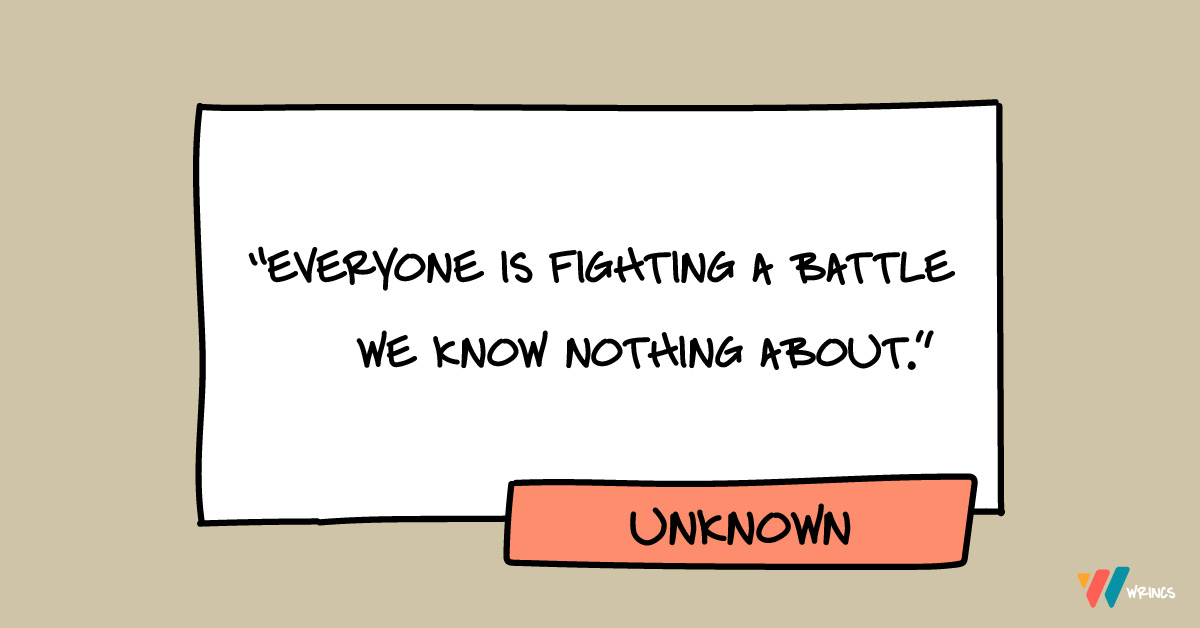In my previous post, What You Should Know About Morning Sickness, we covered some key information and coping tactics. This post will follow a similar structure. Managing your mental health in pregnancy should be an obvious priority. But it’s easy to get lost in the sea of other priorities and stop taking care of yourself. Mrs Wrincs has, in the past, had her worries get on top of her. So, we want to make sure we’re prepared, in-case she needs to deal with anxiety through her pregnancy.
I Am Not An Expert – This Is Not Advice
Disclaimer: I’m not an expert and don’t know what I’m doing. Even official advice can vary in different parts of the world. This is not an “Ultimate Guide To Everything You Should Know About Morning Sickness”. This is just me and my wife picking the next logical thing to figure out, researching it as best we can and writing it here to organise our thoughts. If it’s helpful to anyone, great. You should do your own research, speak to professionals (when possible) and don’t be offended if we didn’t come to the same conclusions you did. Please let me know if you have advice or disagree. Try not to call me names if I’ve said something stupid. But, if it entertains you, I can take it, so make it good.
We’re (my wife and me) doing this research together and I’m just the one who’s posting it.
Mental Health In Pregnancy (NHS)
You can read the full Mental Health In Pregnancy article on the NHS website here.
Being pregnant is a big life event and it is natural to feel a lot of different emotions. But if you’re feeling sad and it’s starting to affect your life, there are things you can try that may help.
Things You Can Try To Help With Your Mental Health
Do:
- talk about your feelings to a friend, family member, doctor or midwife
- try calming breathing exercises if you feel overwhelmed
- physical activity if you can – it can improve your mood and help you sleep
- eat a healthy diet with regular meals
- try to attend antenatal classes to meet other pregnant people
Don’t:
- compare yourself to other pregnant people – everyone experiences pregnancy in different ways
- be afraid to tell healthcare professionals how you are feeling – they are there to listen and support you
- use alcohol, cigarettes or drugs to try and feel better – these can make you feel worse and affect your baby’s growth and wellbeing
Apps
You may find that some apps can help your mental health. The NHS Apps library has a list of mental health apps (and I’ve included the ones they list as fully free):
- BlueIce
- Calm Harm
- Catch It
- Chill Panda
- Cove
- distrACT
- MeeTwo
- Student Health App
- Thrive
- WorryTree
Speak to your midwife or a doctor if things you’re trying yourself are not helping. They will offer you more support. They may offer you a referral to perinatal mental health services or other emotional support. Perinatal means the time you are pregnant and up to 12 months after giving birth.
Treatment
The 2 types of treatment for mental health problems in pregnancy are talking therapies and medicine.
Talking therapies can help with common mental health problems like stress, anxiety and depression.
If you decide to take medicine while you are pregnant your doctor will explain how this may affect your baby. Try not to worry. You will be offered the safest medicine at the lowest amount that will still work.
Mental Health Problems
There are many mental health problems you could experience in pregnancy. They can happen at any time, even if this is not your first pregnancy.
| If You | You May Have |
| feel sad all the time | depression |
| have flashbacks, nightmares or feel intense distress when reminded of a past experience | post-traumatic stress disorder (PTSD) – this can happen if you had a pregnancy go wrong, a traumatic birth or have experienced abuse |
| have sudden attacks of panic or fear | panic disorder |
| have obsessive thoughts and compulsive behaviours | obsessive-compulsive disorder (OCD) |
| have an intense fear of giving birth | Tokophobia |
You may also find it hard to cope with your body changing shape, particularly if you have had an eating disorder.
Feelings, Relationships and Pregnancy (NHS)
You can read the full Feelings, Relationships and Pregnancy article on the NHS website here.
Pregnancy brings big changes to your life, especially if this is your first baby. Some people find it easier to cope with these changes than others do. Everybody is different.
Your Feelings
Even if you feel excited about having your baby, it’s also common to feel vulnerable and anxious while pregnant.
If feeling down or anxious is affecting your everyday life, tell a midwife. You will be offered help to deal with worrying thoughts or feelings.
Your Relationship
You may find that you are having arguments with your partner while you’re pregnant.
Some arguments may have nothing to do with the pregnancy, but others may be caused by feeling worried about the future and how you’re going to cope.
It’s important to talk with your partner about how you’re feeling. If you are worried about your relationship, talk to a friend, family member or your midwife.
Domestic Abuse
If your relationship is abusive or violent, get help. There are organisations that can help such as:
- Women’s Aid, which works to keep women and children safe
- galop: The LGBT+ anti-violence charity
You can find out more about domestic abuse in pregnancy here.
Support In Labour
If you have a partner, they may want to be present at the baby’s birth. It can help to find out about your birth options, including where you can give birth.
You can also find out about what your birth partner can do to support you, and what it can mean for them to share this experience.
If you do not have a partner, you may have family or a friend you could ask to be your birth partner.
Involve your birth partner in antenatal classes if you can, and let them know what you want. It may help to discuss your birth plan with them so they understand your wishes for labour.
Having a Baby If You’re On Your Own
If you’re on your own, ask your midwife if there are antenatal classes in your area that are especially for single people.
After birth, it can be encouraging to meet other single parents who also went through pregnancy on their own.
Gingerbread is a self-help organisation for single-parent families. It has a network of local groups and can give you information and advice. The charity can also put you in touch with other parents in a similar situation to you.
Visit the Gingerbread online forum.
Money And Housing
If money is an immediate concern, find out more about the maternity and paternity benefits and leave you’re entitled to claim. Your local Jobcentre Plus or Citizens Advice service can advise you.
If you have a housing problem, contact your local Citizens Advice or your local housing advice centre.
You might be eligible for a Sure Start Maternity Grant on GOV.UK, or Healthy Start vouchers for free milk, vegetables and vitamins.
Other Research
Talking About Your Mental Health Is Never Easy
Social Media, especially, can romanticise pregnancy and emphasise the beautiful experience and “glow”. The research for this post made it clear how common it is to struggle.
You might feel:
- pressure to be happy and excited
- like you have to be on top of everything
- worried you’re a bad parent if you’re struggling with your mental health
- worried that someone will take your baby away from you if you are open about how you’re feeling.
Your feelings are not your fault. You You don’t have to feel guilty. You are not alone.
Speak to someone and find the resources and support networks that will be available no matter where you are and your circumstances.
What If I Had Mental Health Issues In The Past?
You should consider speaking to your midwife or doctor about any previous mental health issues. Even if you’re fine now. You may have a higher risk of becoming unwell after birth.
If You Were Already Taking Medication
Any medication you were taking before pregnancy should be checked with a medical professional.
A Little More Information About Nutrition
There appears to be a correlation between diet quality in pregnancy and mental health issues in children. This comes from a large sample-size study. Children whose mothers ate a poorer-quality or more pro-inflammatory diet while pregnant had a higher risk for emotional and behavioural symptoms at 7 to 10 years of age.
You can read my post about nutrition here.
Support For Dad
Mental health concerns are not limited to the mother. You might feel:
- isolated
- helpless
- pressure to be happy and excited
- like you have to be on top of everything
- pressure to “hold it together” for your partner
Just like any expecting mother: Your feelings are not your fault. You don’t have to feel guilty. You are not alone.
A lot of the advice aimed at women can be helpful for men, too. So check the information, resources and treatment above again.
You can take a depression and anxiety self-assessment quiz (from the NHS) here.
There are plenty of resources available to support you if you need help. One of which is the charity, Dads Matter UK.
There has long been a stigma attached to men talking about their feelings. Things have improved but you must know; there is help available and it is a positive and admirable thing to ask for it.
How Mrs Wrincs Feels
The morning sickness has been difficult but overall, she’s been as positive and mentally well as could be expected. Mrs Wrincs is a very strong and resilient woman. Things are looking good right now but I still worry about her. She’s happy to talk to medical professionals, even if she’s currently fine. The restrictions are about to ease off very soon and she’s excited to have greater access to her family again.
My wife is in a good place. I’m proud of her.
How Mr Wrincs Feels
Overall, I’ve been very lucky with my mental health. That doesn’t mean I’ve never had any difficulties (maybe I’ll talk about that more in a future post), but I do feel fortunate. I’m in a good place at the moment. There have been times when Mrs Wrincs was really struggling with sickness and I felt powerless. The main negative feeling I’ve felt in my life is loneliness. My family is growing with my child on the way and I do think that helps.
Everyone’s Different
Just to reiterate: This is not intended to be a guide. Just a log and breakdown of the information we’ve found and how we’ve interpreted it. I’m not an expert (very far from it); I’m just doing my best for our new family. If it’s useful to anyone, that’s great. This is not the “right answer”. This is just how an idiot and his wife approached a complicated topic.
Next Pregnancy Post: How to Get a Midwife
Previous Pregnancy Post: What You Should Know About Morning Sickness
First Pregnancy Post: I’m Pregnant. Now What?

